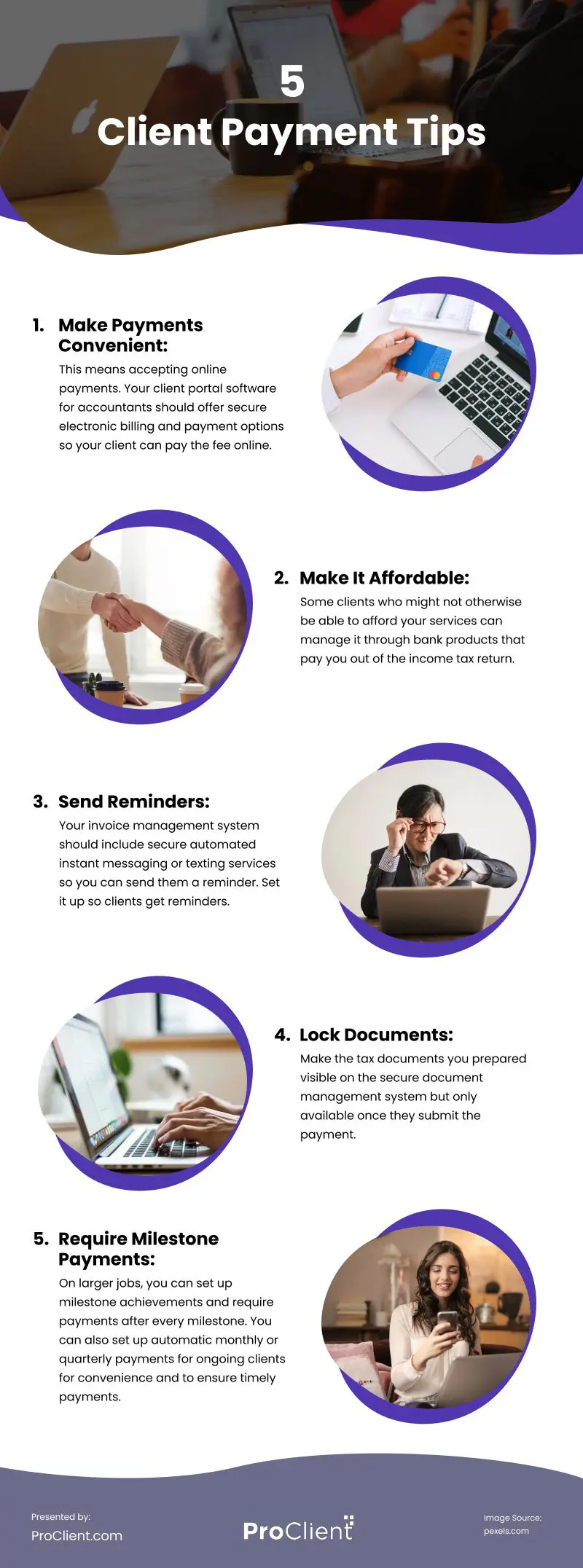It seems obvious. You complete a job, and you get paid, right? Yet every business deals with forgetful clients and even clients that refuse to pay their bills. To get paid, you often waste precious billable hours trying to track down delinquent payments rather than working your business. It can be incredibly frustrating and even damaging to your business.
No one wants to spend their time making collections calls. There must be a better system to get timely payments. Well, there is. Keep reading for tips on how to avoid late payments.

(Drazen Zigic/Freepik)
Wondering Why Clients Wouldn’t Pay Their Bills?
The top reasons clients don’t pay their bills are:
- You don’t have a clear payment policy
- They don’t have the money
- They have disputes over the services rendered or bill
- You have inconvenient payment options
Make Things Clear Up Front
You want to make things crystal clear from the first contact to the final bill. If you go over the terms, and the client signs them before you begin, they are more likely to pay the bill. The client needs to understand four things:
1. What They Are Paying For
These can be physical or digital products, services rendered, or a combination. Make sure you’re on the same page on what they should expect to get for their money.
2. Much It Costs
Whether it’s an hourly rate or a flat fee, the client needs to understand the approximate bottom line rather than get surprised at the end with a bill they cannot pay. If it is taking longer or you need to add services to the original deal, inform the client so they understand the value to them. When you get the go-ahead, they agree to the price change.
3. What Happens If The Payment Is Late
You can charge a flat late fee or interest on the total bill. Make certain your late fee doesn’t exceed the allowable amount according to state law. Include the terms on your contract or payment agreement and post them somewhere near where you discuss fees if you accept walk-ins so people know the late fees from the beginning.
4. Any Savings They May Receive For Early Payments
Offering a small discount for early payments can incentivize your clients to pay on the date of service or before the billing due date. If they don’t pay at the time of service, include the savings on the billing statement so they cannot miss it.
Additional Tips
Make Payments Convenient: This means accepting online payments. Your client portal software for accountants should offer secure electronic billing and payment options so your client can pay the fee online.
Make It Affordable: Some clients who might not otherwise be able to afford your services can manage it through bank products that pay you out of the income tax return.
Send Reminders: Your invoice management system should include secure automated instant messaging or texting services so you can send them a reminder. Set it up so clients get reminders:
- Just before the end of their discount for paying early (so they can still take advantage of that lower price)
- On the due date
- A couple of days after they miss the payment deadline
Lock Documents: Make the tax documents you prepared visible on the secure document management system but only available once they submit the payment.
Require Milestone Payments: On larger jobs, you can set up milestone achievements and require payments after every milestone. You can also set up automatic monthly or quarterly payments for ongoing clients for convenience and to ensure timely payments.
What If They Still Don’t Pay?
If your client fails to pay the bill after that, a phone call is in order. See if there is a reason why the client didn’t pay, like they dispute the amount on the bill, didn’t get the documents you sent them, or another viable reason. If the problem is resolvable, great. If not, it may be time to send them to collections and let someone else handle the follow-up.
Typically, you or your in-house collection team handles collection letters and messages until they are 180 days delinquent on their account. You can then sell the debt to a collections agency, recouping some of your losses. (You might remind your client before the 180 days are up that a charge-off debt stays on their credit for seven years.)
Final Thoughts
Billing is one area of your business where you can automate processes upfront. With the clear payment expectation made and terms written, signed, and retained by the client in paper or electronic formats, they cannot claim ignorance or that you surprised them with the amount. You reinforced your payment policy at every step of the process through reminders, and most of your clients will pay before or on the due date.
Video
Infographic
Efficient client payment management is crucial for business success. However, chasing overdue bills can drain resources and damage operations. To streamline payment processes, check out the client payment tips in this infographic.





